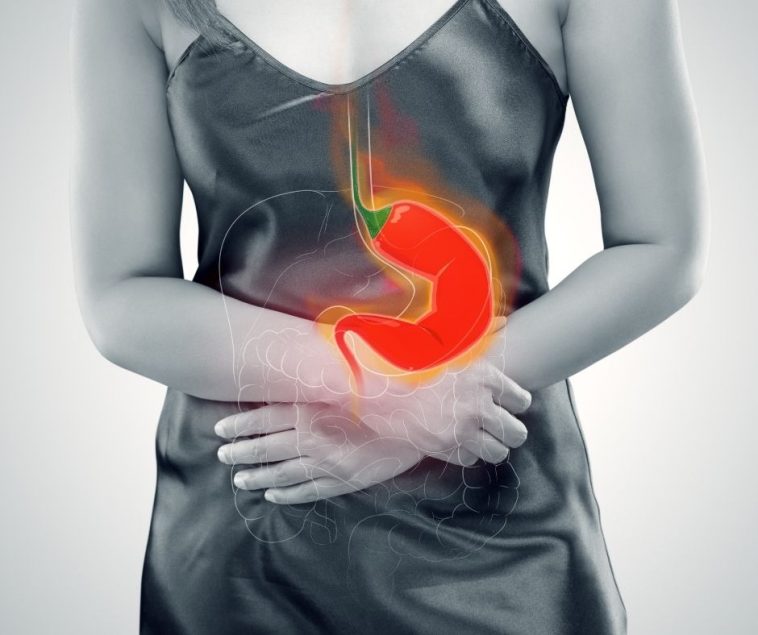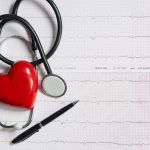The term “stomach” is referred to by the prefix “Gastro-.” The tube that runs from the mouth to the stomach is called the oesophagus, and the phrase “oesophageal” refers to that tube. “Reflux” is the term used to describe backflow. As a result, gastroesophageal reflux disease refers to the backflow of contents from the stomach into the oesophagus.
The condition known as gastroesophageal reflux disease (GERD) causes patients to suffer from heartburn and acid indigestion. GERD is often confused with chest pain that is caused by cardiac issues. GERD development occurs when the lower oesophageal sphincter is unable to form a proper seal when food is introduced into the stomach. This results in the backward movement of stomach acid into the oesophagus.
Physiology
The oesophagus is the tube that moves food down to the stomach after being swallowed. The lower oesophageal sphincter, a muscular ring, contracts as food enters the stomach. This prevents the stomach’s contents from being regurgitated into the oesophagus while the meal is being broken down and churned in the stomach.
GERD is caused by stomach contents refluxing into the oesophagus when the lower oesophageal sphincter does not function properly. Because the contents of the stomach are often acidic, this generates a burning sensation in the chest.
The severity of gastroesophageal reflux disease (GERD) is determined by the degree to which the lower oesophageal sphincter is dysfunctional, the contents of the stomach, and the pressure exerted by the stomach on the oesophagus.
Causes
GERD has the potential to be brought on by anything that causes an increase in the pressure that is placed on the back of the stomach. These include the following:
Diet and Lifestyle: GERD There is a correlation between being pregnant and engaging in unhealthy behaviors such as binge eating, excessive alcohol use, smoking, being overweight, and consuming certain foods and beverages, such as coffee.
Abnormalities of structure, such as hernias of the hiatus (outpouching of the stomach above the diaphragm).
Symptoms
Patients often complain of “indigestion” or “heartburn,” which is a burning sensation behind the breastbone that ascends to the throat and neck. Patients also frequently complain of “gas,” characterized as a sense of fullness in the stomach. The uncomfortable sensation of heartburn, often accompanied by a sour or bitter taste in the mouth, may last for up to two hours and is made worse while lying down in a horizontal position.
It’s possible to confuse heartburn with pain in the chest caused by cardiac conditions. It is of the utmost importance to differentiate between the two, given that heartburn may be treated and cardiac reasons of chest pain pose a significant risk of morbidity, respectively.
When in doubt, you should always see a medical professional.
Treatment
Changes in both one’s diet and one’s way of life are the foundation of GERD treatment.
It is recommended that you cut down on your consumption of acidic foods, such as citrus fruits and juices and tomatoes; foods that weaken the lower oesophageal sphincter, such as chocolate, fatty meals, and alcohol; and any items that are known to be cause pain in certain people.
The treatment of symptoms associated with GERD may also be helped by controlling portion amounts and cutting them down. Eating at least two hours before going to bed may help reduce acid reflux throughout the night. Losing weight and overcoming obesity are also effective ways to treat GERD.
Quitting smoking and drinking less alcohol are two lifestyle changes that might help GERD symptoms.
GERD may be alleviated by making minor adjustments to one’s sleeping posture, such as lying on one’s stomach rather than their back.
Alterations to one’s lifestyle and one’s food, as well as the usage of medications such as antacids, might help provide some relief for symptoms that are brought on by stomach acid. On the other hand, the use of antacids for an extended period raises the risk of anomalies in the blood levels of calcium and magnesium, which may lead to serious consequences in patients who already have renal impairment.
Histamine antagonists, such as Famotidine, are widely available for purchase in Singapore, and proton pump inhibitors are two other classes of potential medications (e.g., Omeprazole).
Rarely, oesophageal manometry, which is the measurement of pressure along the oesophagus, may help determine whether or not patients with chronic GERD, despite treatment with the therapies mentioned above, have abnormalities in the peristaltic movement of the the esophagus that contribute to the condition.
If a patient suffers from severe GERD as a result of a hiatus hernia, for example, surgery may be necessary to treat the condition successfully. However, given that GERD is not considered a life-threatening condition, your doctor will likely only propose surgery as a last resort.




